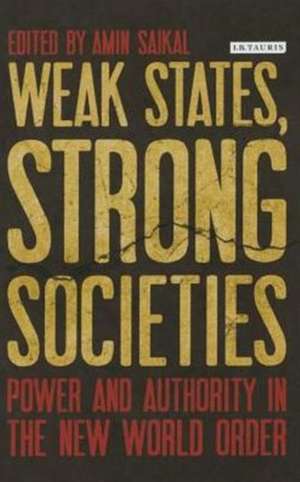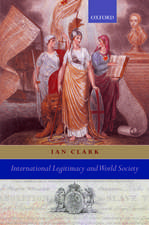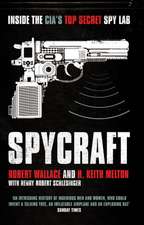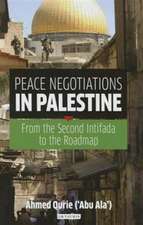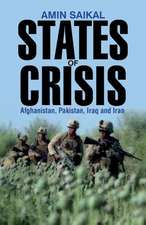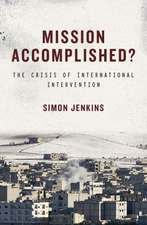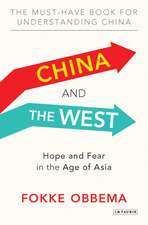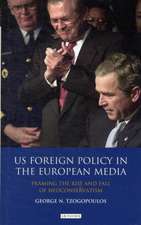Weak States, Strong Societies: Power and Authority in the New World Order
Editat de Amin Saikalen Limba Engleză Hardback – 26 noi 2015
Preț: 772.98 lei
Preț vechi: 1112.44 lei
-31% Nou
Puncte Express: 1159
Preț estimativ în valută:
147.91€ • 152.59$ • 123.43£
147.91€ • 152.59$ • 123.43£
Carte tipărită la comandă
Livrare economică 27 martie-10 aprilie
Preluare comenzi: 021 569.72.76
Specificații
ISBN-13: 9781784534806
ISBN-10: 1784534803
Pagini: 272
Dimensiuni: 138 x 216 x 30 mm
Greutate: 0.48 kg
Editura: Bloomsbury Publishing
Colecția I.B.Tauris
Locul publicării:London, United Kingdom
ISBN-10: 1784534803
Pagini: 272
Dimensiuni: 138 x 216 x 30 mm
Greutate: 0.48 kg
Editura: Bloomsbury Publishing
Colecția I.B.Tauris
Locul publicării:London, United Kingdom
Notă biografică
Amin Saikal is Director of the Centre for Arab and Islamic Studies and Professor of Political Science at the Australian National University. He has been a visiting fellow at the University of Cambridge and Princeton University, as well as at Sussex University's Institute of Development Studies. He has also been a Rockefeller Foundation Fellow in International Relations. He was awarded the Order of Australia (AM) in 2006. He is the author of a number of works on the Middle East, Central Asia and Russia, including Islam and the West: Conflict or Cooperation? (2003); The Rise and Fall of the Shah: Iran from Autocracy to Religious Rule (2009), Modern Afghanistan: A History of Struggle and Survival (I.B.Tauris, revised 2012), Zone of Crisis: Afghanistan, Pakistan, Iran and Iraq (I.B.Tauris, 20104) and editor of Democracy and Reform in the Middle East and Asia: Social Protest and Authoritarian Rule after the Arab Spring (I.B.Tauris, 2013).
Cuprins
ContentsPrefaceivContributorsviiAbbreviationsixIntroduction1Amin
Saikal
and
Stephanie
Wright1
Defining
the
Issues
of
State-Society
Relations
12Richard
Falk2
From
nation-states
to
member
states:
State-society
relations
and
state
transformation
in
contemporary
Europe29Christopher
Bickerton3
The
dynamics
of
federalism:
Belgium
and
Switzerland50Jan
Wouters,
Sven
van
Kerckhoven
and
Maarten
Vidal4
State-society
relationships
in
Eastern
Europe
and
world
politics79Vesselin
Popovski5
State-civil
society
dynamics
in
Morocco
and
Algeria:A
case
of
divide
and
rule?114Karima
Laachir6
Afghanistan
and
Iraq:
State-building
in
countries
with
strong
societies144Amin
Saikal7
State-society
dynamics
and
authoritarian
stability
in
Central
Asia165Kirill
Nourzhanov8
Weak
states
and
strong
societies
in
Southeast
Asia202Carlyle
A.
Thayer9
The
crisis
of
the
state
in
Africa
and
the
unending
searchfor
the
reinvention
of
the
state
in
Somalia230Jide
Martyns
Okeke10
Strong
states,
strong
societies,
weak
democracies?
Assessing
state-society
relationships
in
Latin
America256Pia
RiggirozziConclusion290Amin
SaikalBibliography297Index
